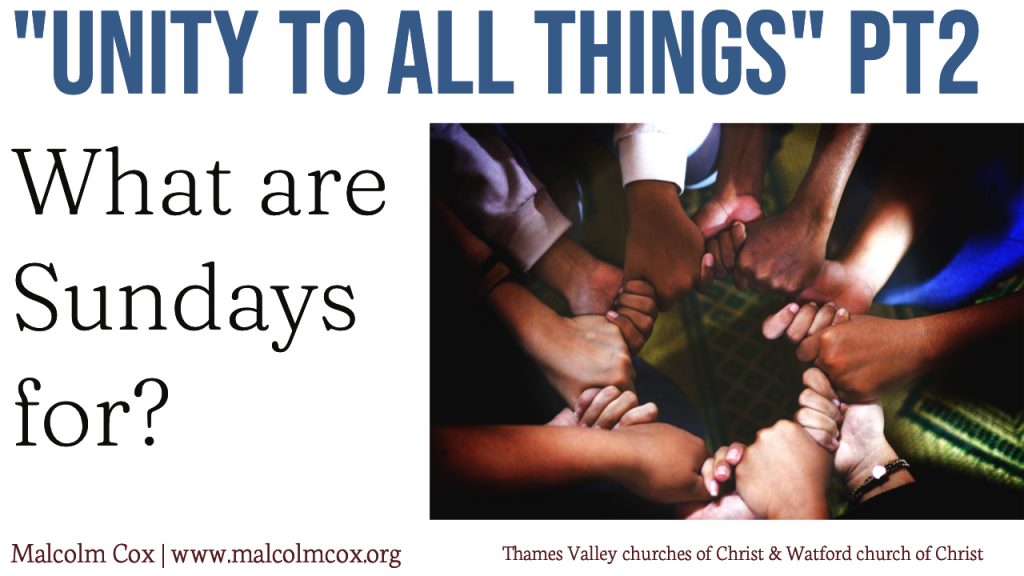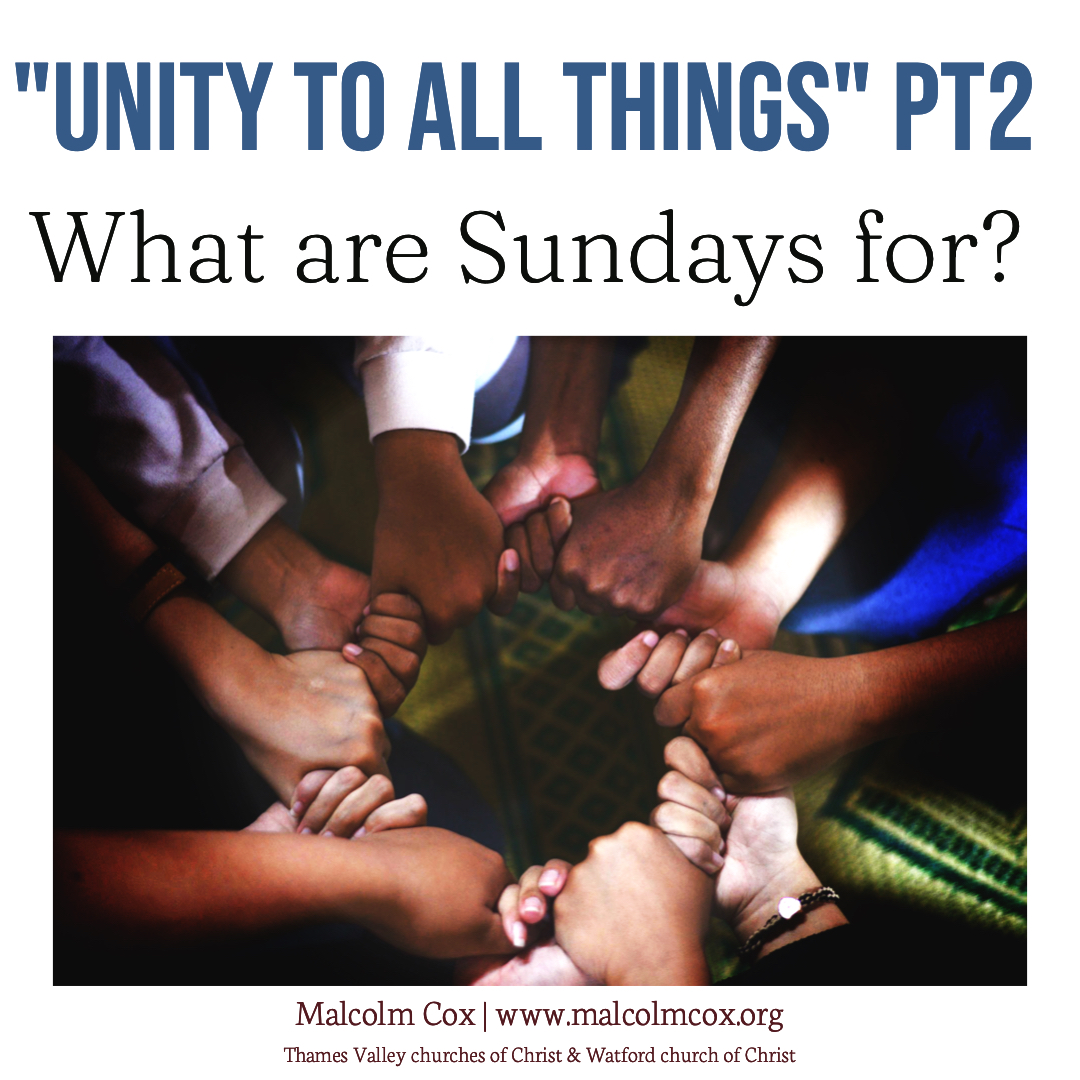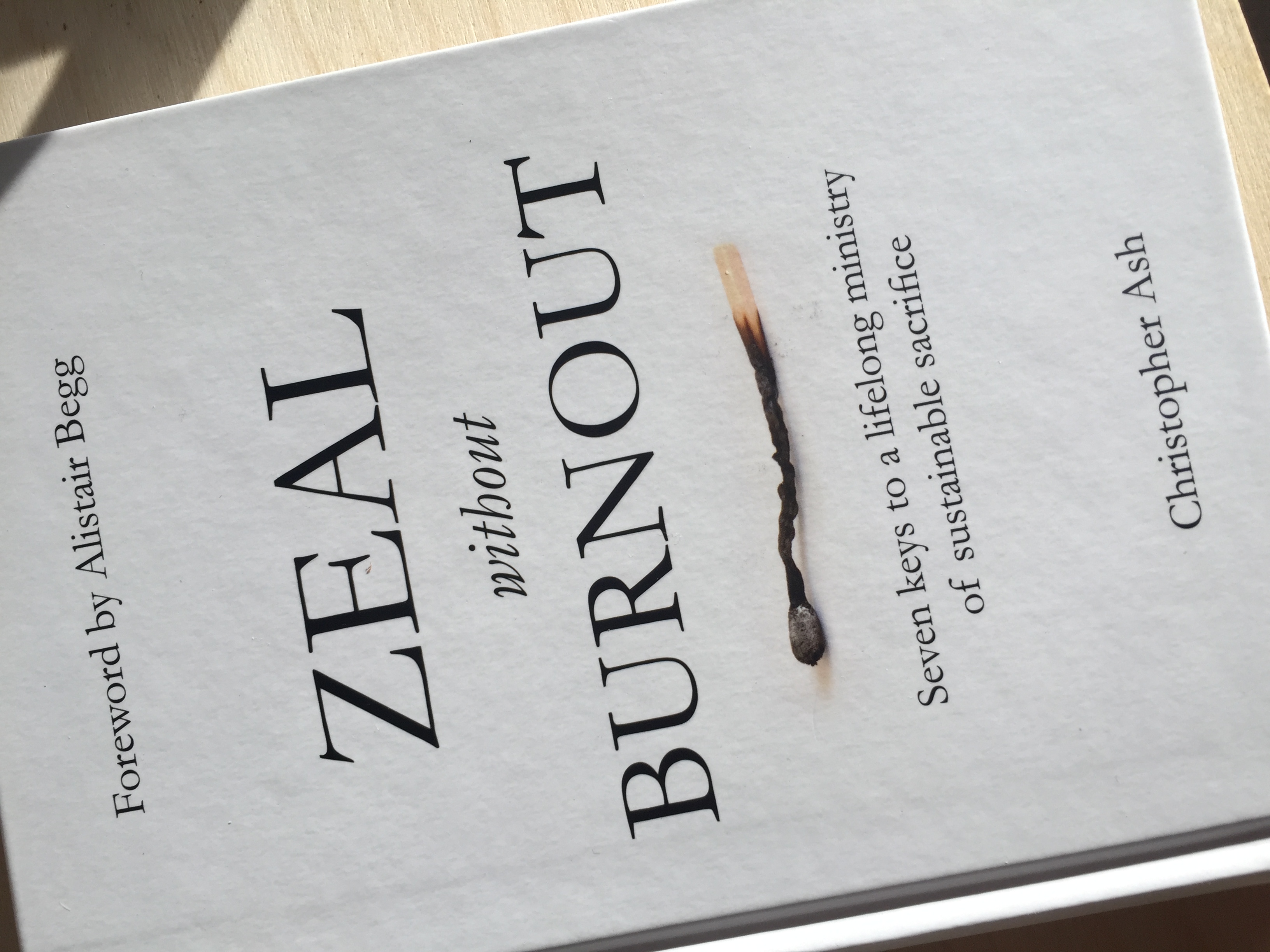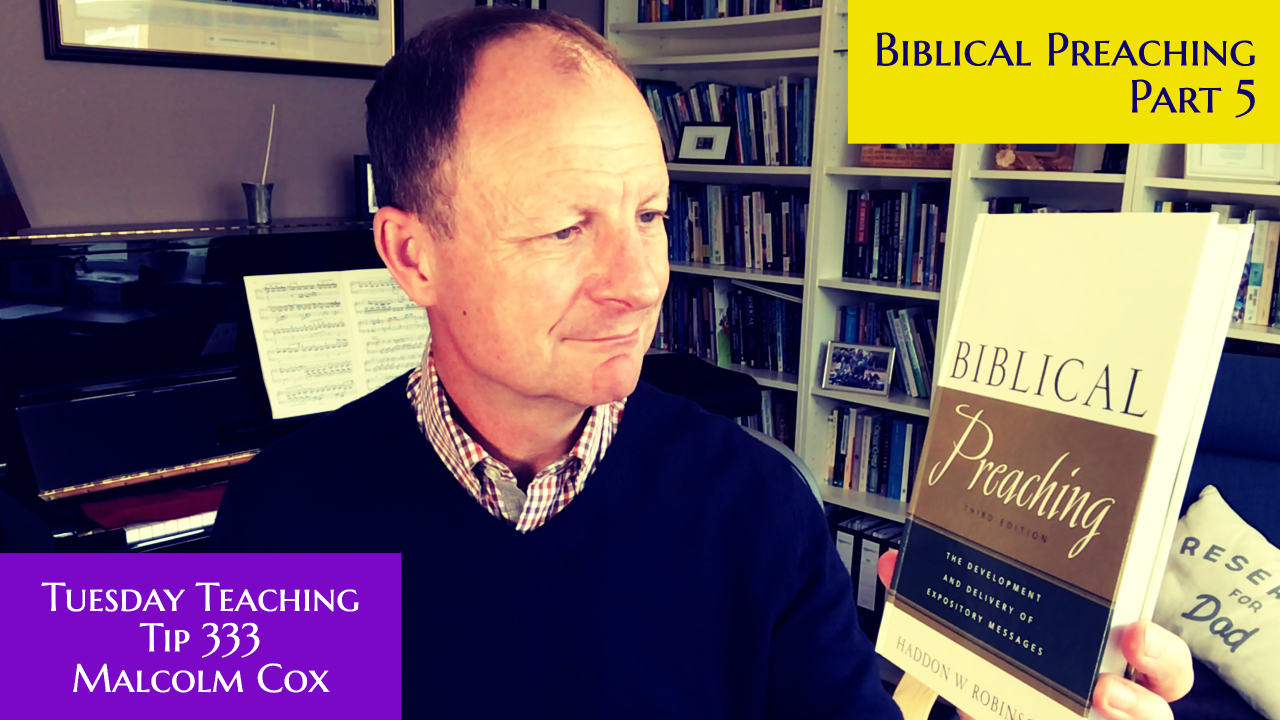
The second of the four part series helping us reboot our thinking about why we gather on Sundays.
More resources here: https://www.malcolmcox.org/unity-to-all-things/
Scripture references:
Genesis 1,3–5; Luke 24,1, 13; Acts 20,7; 1 Corinthians 16,2; Revelation 1,10; 1 Timothy 4,13; Hebrews 10,24–25; 1 Peter 1,22; 1 Corinthians 10,16, 17; Acts 4,24; 1 Corinthians 11:4-5; Colossians 3:16;
“All judges, city people, and craftsman shall rest on the venerable day of the Sun. But countrymen may without hindrance attend to agriculture.” Emperor Constantine, 321
“Concerning the observance of the eighth day in the Jewish circumcision of the flesh, a sacrament was given beforehand in shadow and in usage. But when Christ came, it was fulfilled in truth. For the eighth day (that is, the first day after the sabbath) was to be that day on which the Lord would rise again, enliven us, and give us the circumcision of the Spirit. The eight today (that is, the first day after the sabbath), the Lord’s day, was foreshadowed.” Cyprian, c.250
“And on the day called Sunday, all who live in cities or in the country gather together to one place, and the memoirs of the apostles or the writings of the prophets are read… But Sunday is the day on which we all hold a common assembly, because it is the first day on which God… Made the world. And Jesus Christ our saviour rose from the dead on that same day.” Justin Martyr circa 160
“We consider fasting or kneeling in worship on the Lord’s day to be unlawful.” Tertullian c. 211
“During the rest of the week the church was dispersed and hidden, as its individual members went about their life and work in different places. But on Sunday the church came together and revealed itself in the celebration of the Eucharist, with each member occupying his or her place in the assembly…” Paul Bradshaw; Early Christian worship; 78
Questions:
- What method of teaching works best for you when we gather together? How can you make the most of the teaching we receive from one another?
- What helps you to make the most of our gathered fellowship?
- What helps you to make the most of the breaking of bread when we are together?
- Which one of these (prayer and singing) is most meaningful to you and why? Which is least meaningful and why?
Please add your comments on this week’s topic. We learn best when we learn in community.
Do you have a question about teaching the Bible? Is it theological, technical, practical? Send me your questions or suggestions. Here’s the email: malcolm@malcolmcox.org.
Please pass the link on, subscribe, leave a review.
“Worship the LORD with gladness; come before him with joyful songs.” (Psalms 100:2 NIV11)
God bless, Malcolm


